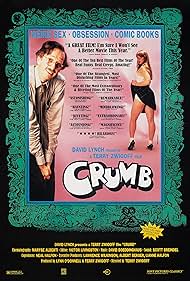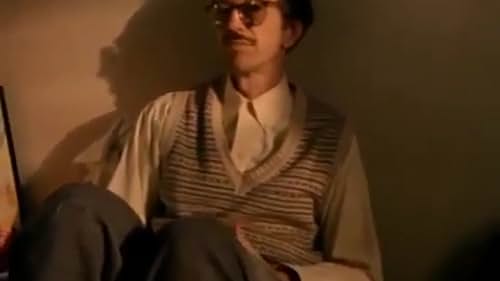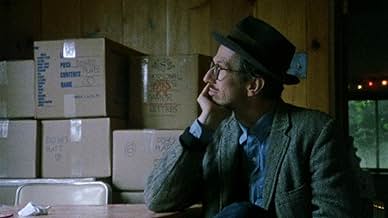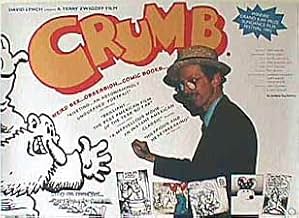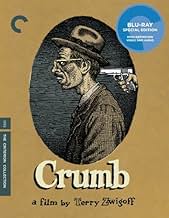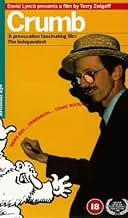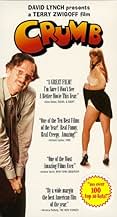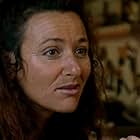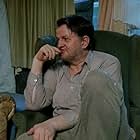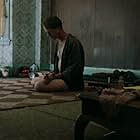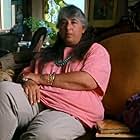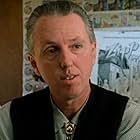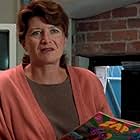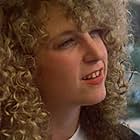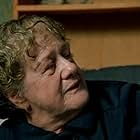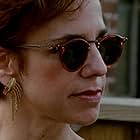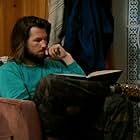An intimate portrait of controversial cartoonist Robert Crumb and his traumatized family.An intimate portrait of controversial cartoonist Robert Crumb and his traumatized family.An intimate portrait of controversial cartoonist Robert Crumb and his traumatized family.
- Awards
- 18 wins & 6 nominations total
- Self
- (as Aline Crumb)
- Self
- (as Dana Crumb)
Featured reviews
Everyone seems to come away from the movie with an idea that Robert is spared the obvious insanity of his two brothers because of his art. But I see it differently(hence the title of this comment). Even Robert admits that his brother, Charles, was a better cartoonist. Another way to view Robert's "success" and his brothers' descent into "crazy" is fame. Crumb was an involuntary icon of the 60's. Where would Robert be today if he wasn't recognized and rewarded in the 60's? If Zap comix had turned him away for his misogynist and racist comics, would he have had the subsequent female relationships that seemed to normalize his existence? What would his fantasizing over a high school yearbook and habitual masturbation meant if he was an unknown sharing a room with his brother at Mom's house?
When I watch this movie, I am always mindful that Robert's obvious genius would be lost were it not for his luck at being discovered. I suppose that is an obvious statement but, in Crumb's case, fame has managed to gloss over many unacceptable characteristics. And, maybe, that's not such a bad thing.
The film lightly touches on Crumb's relationship with his son and daughter. For some reason, Crumb's bumbling attempts at affection with his children were a bit disturbing. Or maybe its just that Crumb's fixation with wrestling and piggyback riding lingers in your mind when he hugs his daughter.
On a lighter note, I've noticed that no one has mentioned the soundtrack of this movie. Designed to be in keeping with Robert's love of old American music, the music helps to define the subject. I wonder why Zwigoff made no mention of Crumb's Cheap Suit Serenaders band.
Crumb comments against the crass commercialism of America. And, yet, I first saw this movie at a theater in Baltimore where the lobby was chock full of Crumb comic picture cards, mugs, etc.
Crumb, the movie, is a crazy world of contradictions and well worth the ride.
During childhood, Crumb and his brothers Charles and Maxon found solace from their tyrannical father in comic books and drawing cartoons. Crumb escaped the mental illness that ended both his brother's careers as artists (Charles was equally as talented), but otherwise had a perfectly miserable childhood and adolescence. Socially awkward, bullied at school and rejected by women, he decided in 1962 (at age 17) to take revenge upon society `by becoming a famous artist'.
In 1966, his chemically inspired `revelations of some seamy side of America's subconscious' caught the eye of a Haight Street publisher in San Francisco and Zap Comix was born. Zap was an outlet for his creative energy, which was rooted in his social difficulties. He was uninterested in money and once turned down a $100,000 contract a huge sum of money in those days. Although identified with the hippie crowd, he could not relate to their culture: `My main motivation [for drawing] was to get some of that free love action'.
After a few years of fame, he retired from Zap to express the darker side of his nature. His later work frequently contained sadistic and violent themes and was sometimes labeled as pornography by friends and critics alike. Even Crumb isn't sure of his intent: `Maybe I should be locked up and my pencils taken away from me'.
Critic Robert Hughes says that in Crumb's world there are no heroes and `even the victims are comic' ideas that don't jive with traditional American culture. But Crumb has always considered himself to be an outsider and enjoys the feeling of `being very removed or extremely separated from the rest of humanity and the world in general'. `Words fail me, pictures aren't much better' to describe his disgust with American consumerism. He now lives in France because its culture is `slightly less evil than the United States'.
The film is embarrassingly candid about unhappy details of Crumb's life, such as his brothers' mental illness, experiments with drugs and ambivalent attitudes towards women. Yet it is apparent that there is no misery or violence in this man it's all on paper. (Rating: A)
Storyline
Did you know
- TriviaWhen he was trying to raise funds for the film, Terry Zwigoff encountered Terry Gilliam whom he knew had worked with Robert Crumb in the late 60s. Approaching Gilliam, Zwigoff asked for some help with the budget. Gilliam reached into his pocket, handed over a nickel and then walked away.
- Goofs"San Francisco" is misspelled in the closing titles. The caption reads: "Max Crumb still lives in San Francicsco".
- Quotes
Robert Crumb: Jesus. Fuckin' raging, epithet music comin' out of every car, every store, every person's head. They don't have noisy radios on, they got earphones; like, "motherfuckin', cocksuckin', son of a bitch. Lot of aggression. Lot of anger, lot of rage. Everybody walks around, they're walkin' advertisements. They've got advertisements on their clothes, you know? Walking around with "Adidas" written across their chests, '49'ers on their hats. Jesus. It's pathetic. It's pitiful. The whole cultures' one unified field of bought-sold-market researched everything, you know. It used to be that people fermented their own culture, you know? It took hundreds of years, and it evolved over time. And that's gone in America. People now don't even have any concept that there ever was a culture outside of this thing that's created to make money. Whatever's the biggest, latest thing, they're into it. You just get disgusted after a while with humanity for not having more, kind of like, intellectual curiosity about what's behind all this jive bullshit.
- How long is Crumb?Powered by Alexa
Details
Box office
- Gross US & Canada
- $3,041,083
- Opening weekend US & Canada
- $19,859
- Apr 23, 1995
- Gross worldwide
- $3,041,083
Contribute to this page

